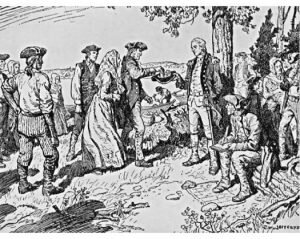Land Surveying History
 Land surveying is one of the oldest professions on this planet. After men decided that a portion of land should be owned by a particular person or group, the demand for surveying began.
Land surveying is one of the oldest professions on this planet. After men decided that a portion of land should be owned by a particular person or group, the demand for surveying began.
Land surveying is fascinating. The strategies used try to decide which part of land belongs to whom, hopefully ending arguments forever.
In short, surveying is a process using mathematical ways to survey land.
A bit of land surveying history
The very first accounts of surveying land dates back to ancient Egypt. Experts discovered evidences that the ancient Egyptians used basic geometry to redraw the lines of boundary when the Nile River overflowed. An Egyptian land register going back 3000 BC was found.
Following Egyptians, the Romans – also about the most powerful civilizations from the ancient world – practiced land surveying. They took it one step further and made “land surveyor” a certified position in the Empire. They were called agrimensores, often called Corpus Agrimensorum Romanorum.
Though they used rather simple tools, they were very thorough with their jobs and would create straight lines and correct angles with the use of these tools. As soon as the lines were measured, they would create shallow ditches to mark the lines. In fact, some of the furrows they created remain today.
One of the recorded land surveying of the “modern” times is that of William the Conqueror who wrote the Domesday Book in 1086. This book is really a directory of names of land owners, the quantity of land they owned and also other information about the land. Whilst it was a fabulous volume of information during this time, the bits of information were not 100% correct. The locations were not accurate and the maps were not made to scale.
One among history’s greatest icons have also been an ardent surveyor – Napoleon Bonaparte. The interest in surveying land was really just a product of his want to conquer the entire world. Napoleon Bonaparte founded a registry called cadastre. This consists of a registry of properties of a county, ownership details, locations and as much information about the land’s value. Yes, Napoleon Bonaparte can be viewed a land surveyor – plus a very smart man.
The ways used in land surveying also have evolved over the centuries, over time. Long ago, people would use anything that might help them determine the length from one point to another. This implies using chains with links and even ropes. Not surprisingly, this didn’t give accurate results but they didn’t have the technology we’ve got in those days.
Today, land surveyors enjoy the best technologies to help them with their job. There’s GPS, or Global Positioning System, which is among the most accurate technologies used today. Total stations are also vital to a land surveyor, which employs the usage of an EDM or Electronic Distance Measurement device together with a theodolite that allows for further precise angle and distance measurements.
